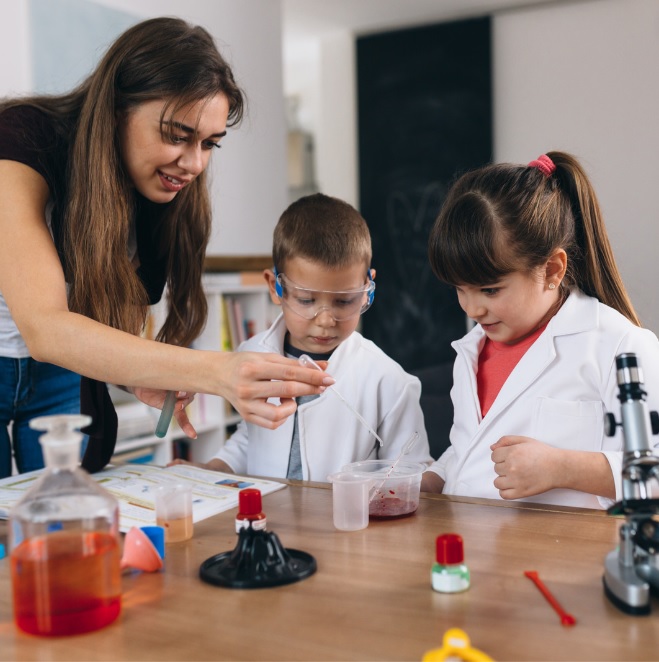Science Experiments You Can Do at Home

Exploring science through hands-on experiments is a fantastic way to spark curiosity and foster a love for learning. Conducting science experiments at home not only enhances understanding of scientific concepts but also makes learning fun and interactive. Here are some exciting science experiments you can do at home, perfect for students of all ages.
Volcano Eruption
Creating a mini volcano is a classic science experiment that demonstrates chemical reactions. Here's what you need:
- Materials: Baking soda, vinegar, dish soap, red food colouring, a small plastic bottle, and clay or playdough.
- Instructions:
- Mould the clay or playdough around the bottle to form a volcano shape.
- Add a few drops of dish soap and red food colouring into the bottle.
- Pour in baking soda.
- Quickly add vinegar and step back to watch the eruption!
This experiment illustrates an acid-base reaction, producing carbon dioxide gas that creates the 'eruption.'
Floating Egg
Subjects: Physics, Chemistry
This simple experiment demonstrates the principles of density and buoyancy.
- Materials: An egg, salt, water, a glass.
- Instructions:
- Fill the glass with water and gently place the egg in it. Notice it sinks.
- Remove the egg and add salt to the water, stirring until it dissolves.
- Place the egg back in the water. It will float due to the increased density of the salty water.
Discuss how the density of the liquid affects the egg's buoyancy.
Invisible Ink
Subjects: Chemistry, History
Discover the secrets of invisible ink used by spies throughout history!
- Materials: Lemon juice, water, a cotton swab, white paper, a lamp or iron.
- Instructions:
- Mix lemon juice with a small amount of water.
- Use a cotton swab to write a message on the paper with the lemon juice mixture.
- Allow the paper to dry completely.
- To reveal the message, heat the paper gently with a lamp or iron.
This experiment shows how organic substances oxidise and turn brown when exposed to heat.
Balloon Rocket
Subjects: Physics, Mathematics
A balloon rocket demonstrates Newton's Third Law of Motion: for every action, there is an equal and opposite reaction.
- Materials: A balloon, a straw, string, tape.
- Instructions:
- Thread the string through the straw and tie the ends to two fixed points, creating a straight line.
- Inflate the balloon without tying it, then tape it to the straw.
- Release the balloon and watch it zip along the string.
This experiment is perfect for understanding forces and motion, and you can measure the distance travelled for added mathematical fun.
DIY Lava Lamp
Subjects: Chemistry, Art
Create your own mesmerising lava lamp to learn about liquid density and solubility.
- Materials: A clear bottle, water, vegetable oil, food colouring, Alka-Seltzer tablets.
- Instructions:
- Fill the bottle 2/3 with oil and the rest with water, leaving some space at the top.
- Add a few drops of food colouring.
- Drop in half an Alka-Seltzer tablet and watch the reaction.
The differing densities and the tablet's reaction create the lamp's signature blobs.
Incorporating Academic Subjects
Each of these experiments seamlessly integrates core academic subjects such as chemistry, physics, and mathematics. These subjects form the foundation of the national curriculum and are essential for a well-rounded education.
Engaging with the Community
Encourage students to share their experiment results with family and friends. Tutors can integrate these activities into lessons to make learning more dynamic and interactive. Teachers can assign these experiments as fun homework projects, fostering a practical understanding of scientific principles.
Conclusion
Science experiments at home are a delightful way to bring education to life. They provide practical applications of theoretical knowledge, making subjects like geology, history, and art more relatable and enjoyable. So gather your materials, put on your safety goggles, and start experimenting! Not only will you learn a lot, but you'll also have a blast doing it.


